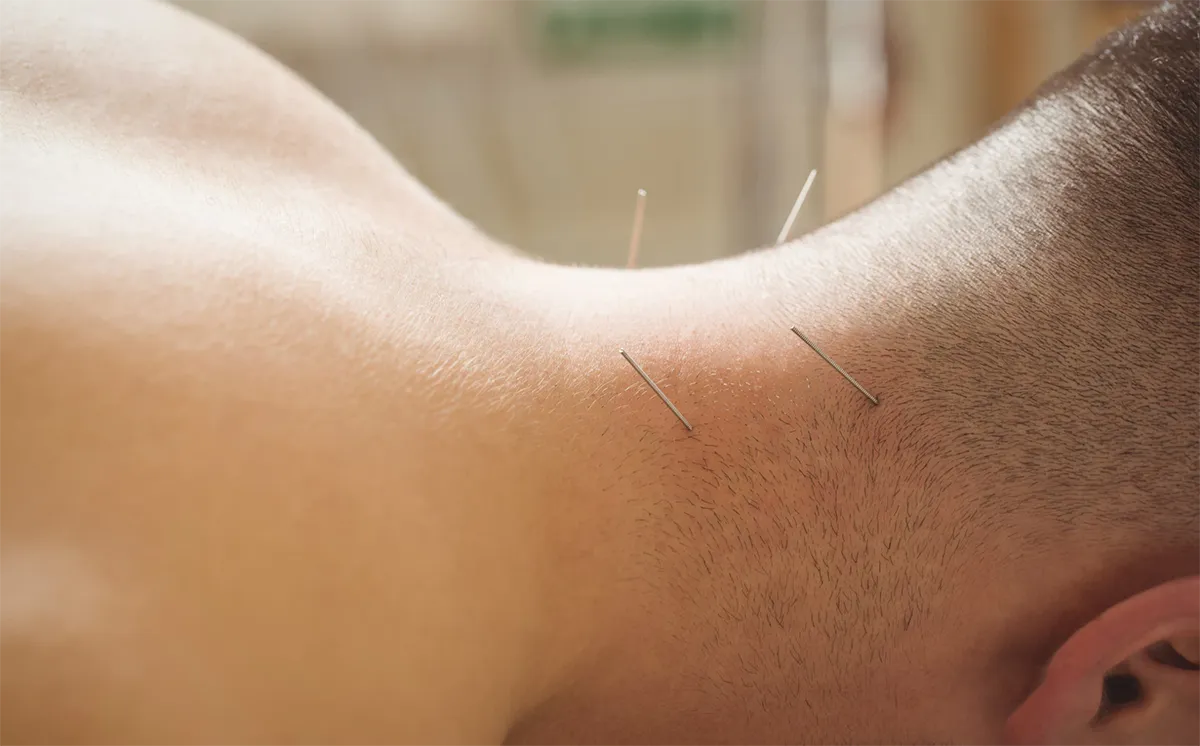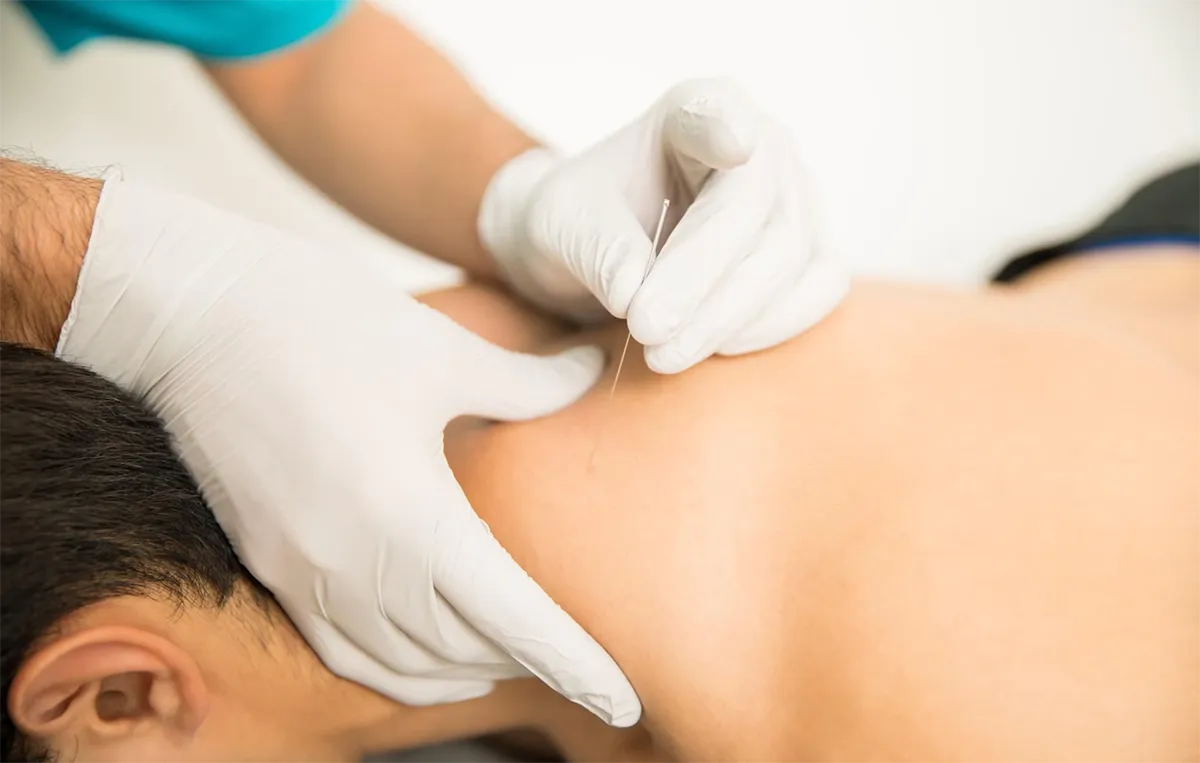Learn More About Acupuncture Research Studies
What Are Acupuncture Clinical Trials?
Acupuncture is a traditional Chinese practice that uses thin, solid metallic needles to penetrate the skin and manage symptoms associated with various health problems. Once inside the skin, the needles may be stimulated or manipulated by applying heat or current. Patients have reported feeling energized and relaxed after the technique.
Scientists haven’t understood the core mechanism behind acupuncture therapy, requiring more acupuncture research studies are needed to understand its role in patient outcomes fully. A growing number of health practitioners are using acupuncture to manage stress management and overall wellness.
Prevailing Chinese wisdom explains acupuncture as a technique for balancing the flow of energy (also known as chi) that can flow through pathways in the body. The use of needles allows practitioners to ‘rebalance’ this flow of energy. It is also believed that acupuncture can boost the body's natural painkillers. More clinical research trials are needed to explore how acupuncture may work and what its benefits and risks are.

Why Is Acupuncture Being Studied Through Clinical Trials?
The mechanisms behind acupuncture therapy are not adequately understood. However, a growing body of evidence suggests acupuncture influences the nervous system, body tissues, and other placebo effects. Studies that used imaging methods in people and animals have found that acupuncture can affect the nervous system. Moreover, acupuncture can directly stimulate the tissues where the needles are inserted.
This effect has been observed in connective tissue. Research is also exploring the effectiveness of acupuncture for severe pain conditions, including knee pain, neck pain, and osteoarthritis. Health practitioners believe that it may also help relieve joint pain through aromatase inhibitors used to treat people with breast cancer. Besides pain, acupuncture has also been studied for other health problems, including seasonal allergy symptoms, nausea, vomiting, and cancer treatment.
Patients with asthma can improve their quality of life by undergoing acupuncture therapy, but studies have indicated that it doesn’t improve lung function. The distribution of neurons has also been found to correlate positively with acupuncture therapy. A 2020 study published in Nature explored the distribution of neurons in the hindlimb and found more neurons in the anterior muscles than the posterior muscles.
This explains why the anterior region has a stronger response to electroacupuncture. This study helps health practitioners predict areas of the body that will respond more positively to acupuncture therapy. It is worth noting that the study was conducted in mice. Still, the researchers argue that the basic organization of neurons may be reproducible in human subjects with a high degree of accuracy.
How Does Acupuncture Treatment Work?
Acupuncture therapy is performed with the help of thin needles. Many patients do not feel any pain when the needles are inserted. The needles are often treated with heat during the treatment, or an electric current may be passed through them. It is important for the practitioners to be properly trained in acupuncture therapy because emperor placement of the needle can cause pain.

The needles are also sterilized to minimize the likelihood of an infection. For this reason, acupuncture practitioners may use other forms of stimulation, such as pressure, friction, cupping, and heat, for the same effect. When done correctly, acupuncture therapy may stimulate the central nervous system.
This stimulates the body’s natural healing abilities by releasing chemicals into the muscles, brain, and spinal cord. Experts believe that acupuncture may be effective when used alone or in combination with conventional therapy to treat a range of conditions.
What Are Some Recent Breakthrough Clinical Trials For Acupuncture?
2016: Effectiveness of Acupuncture Therapy on Stress in College-Aged People - This randomized controlled trial studied the effectiveness of acupuncture on stress markers in college-going participants. 111 patients with high levels of stress were enrolled in the study. However, only 62 managed to complete it. The participants were randomized into an acupuncture group and a sham acupuncture group. Both groups received treatment once a week for 12 weeks.
Primary outcomes were evaluated using Cohen's global measure of perceived stress scale at various treatment intervals. Participants in both groups showed significant improvement in perceived stress scores, with the verum acupuncture group showing superior results. This indicates that acupuncture may be helpful in decreasing the perception of stress in college-going participants for at least three months after the treatment.
2018: Acupuncture for Bortezomib-Induced Peripheral Neuropathy - This clinical trial investigated the efficacy and safety of using acupuncture in decreasing total neuropathic symptoms in patients with bortezomib-induced peripheral neuropathy (BIPN). Patients with BIPN grade 2 or above were enrolled in the study. They received 10 acupuncture treatments over the course of 10 weeks, and their self-reported BIPN-associated symptoms were collected at various intervals.
Changes in their symptoms were analyzed based on various scores, including NPS. It was found that treatment with acupuncture significantly improved patient outcomes, including improvements in the NPS and FACT scores. Sensory symptoms such as tingling and numbness were also reduced. Both dysfunction and hearing scores were significantly improved, indicating improvement in symptoms. It was concluded that acupuncture could improve multiple symptoms associated with BIPN.
2018: Efficacy and Safety of Acupuncture for Functional Constipation - This study investigated the efficacy and safety of acupuncture in patients with functional constipation treatment and compared the results with traditional therapies. Participants with functional constipation (FC) were randomized into a real acupuncture (RA) group and a placebo group (SA). Participants underwent therapy for 12 sessions over the course of 4 weeks. The primary endpoints were measured with defect frequency (DF), Bristol stool scale (BSS), and spontaneous complete bowel movement (SCBM), among others.
It is found that the acupuncture group showed significant improvement in terms of SCBMs with a frequency of 3 times per week, and these improvements were sustained for four weeks after treatment completion. Adverse events were equal in both groups. This warrants more studies in the future to confirm the efficacy and safety of acupuncture therapy.
2018: Phase IIA Trial of Acupuncture in Breast Cancer Patients - This clinical trial aimed to evaluate the efficacy of acupuncture in preventing chemotherapy-induced peripheral neuropathy (CIPN) in patients after neurotoxic chemotherapy. Participants were enrolled in the study after being screened for CIPN and underwent acupuncture treatment. It was found that acupuncture was safe and reduced the incidence of high-grade CIPN during chemotherapy.
2019: Tung’s Acupuncture for Sex Hormones in Polycystic Ovary Syndrome - Polycystic ovary syndrome (PCOS) is a highly prevalent disorder in women. This randomized controlled trial investigated the efficacy of traditional acupuncture in managing PCOS symptoms. 60 patients with PCOS were randomized into a Tung’s acupuncture group or a CPA/EE group. Participants received treatment for 12 weeks to investigate the short-term efficacy of acupuncture, followed by another 12 weeks for long-term efficacy.
The primary outcome was a change in LH: FSH ratio and the secondary outcomes included changes in BMI, LH, FSH, TT, ovarian volume, menstrual frequency, and polycystic ovary number. Both groups showed significant improvement in the primary and secondary endpoints, including the LH/FSH ratio.
No clinically notable differences were observed between the groups. Tung’s acupuncture did not improve better than the CPA/EE group, although it could reduce the LH/FSH ratio even further. Tung’s acupuncture may have some effect on menstruation frequency and weight control.
2019: Acupuncture Versus Cognitive Behavioral Therapy for Insomnia - This clinical trial investigated acupuncture in cancer survivors. Many patients prefer to undergo nonpharmacological treatment for managing insomnia. 160 patients were randomized into eight weeks of acupuncture and CBT-I. Acupuncture therapy with needles was applied to specific points on the body. CBT-1 included relaxation training, cognitive restructuring, stimulus control, and sleep restriction.
The primary outcomes were pain, fatigue, quality of life, and mood. It was found that CBT-1 proved to be more effective than acupuncture. With that said, both groups showed significant improvement in clinical outcomes and maintained them for 20 weeks. Acupuncture was found to be more effective for treating pain at the end of the treatment. Both groups showed similar mood improvement levels, reduced prescription use, and quality of life.
2020: Effect of Acupuncture Treatment on Post-Stroke Cognitive Impairment - Post-stroke cognitive impairment (PSCI) often results in ischemic strokes, especially post-stroke dementia (PSD). Healthcare practitioners do not have an effective treatment plan for preventing PSCI, except intensive secondary stroke prevention. This randomized controlled trial aims to investigate whether acupuncture can improve the cognitive function of patients with PSCI and PSD.
360 patients from 5 hospitals were randomized into an acupuncture group (AG), a placebo group (NAG), and a waiting list group (WLG). The aim of this ongoing study is to evaluate the effects of acupuncture treatment methods for treating PSCI patients. The study will provide more data in developing an optimized acupuncture treatment method.
2020: Laser Acupuncture on Spasticity in Children with Cerebral Palsy - The aim of this clinical trial is to investigate the efficacy of laser acupuncture on spasticity in participants with cerebral palsy. 60 juvenile participants (2-10 yo) were allocated into two groups: the control group and the treatment group. The treatment group underwent laser acupuncture thrice per week for 12 sessions, and placebo laser acupuncture in the control group.
The primary outcome was measured using the Modified Ashworth. The results showed improvement in the Modified Ashworth Scale score in the treatment group. This suggests that laser acupuncture can play an important role in reducing spasticity for adolescents with cerebral palsy.
2020: Comparing Acupuncture and Nutraceuticals in Patients - This randomized controlled trial compared the effectiveness of acupuncture with nutraceuticals in patients with fibromyalgia syndrome (FMS). 60 female participants were randomized into a nutraceutical group and an acupuncture group. Researchers investigated changes in pain and quality of life at various treatment intervals.
Patients in both nutraceutical and acupuncture groups experienced a significant reduction in pain within the first month of undergoing treatment, with further improvements after 3 months. It was found that the nutraceutical approach was effective in helping patients with FMS. However, the evidence also confirmed that acupuncture could be used with other approaches to improve patient outcomes.
Who Are Some of The Key Opinion Researchers Conducting Acupuncture Clinical Trial Research?
Ting Bao, MD, is an integrative medicine expert interested in breast cancer and acupuncture. She is the director of Integrative Breast Oncology at Memorial Sloan Kettering Cancer Center. Bao utilizes complementary therapies in cancer treatment with alternative therapies such as acupuncture to provide the best quality of life for her patients. She has also conducted research in various journals to explore the effectiveness of acupuncture in patients with cancer.